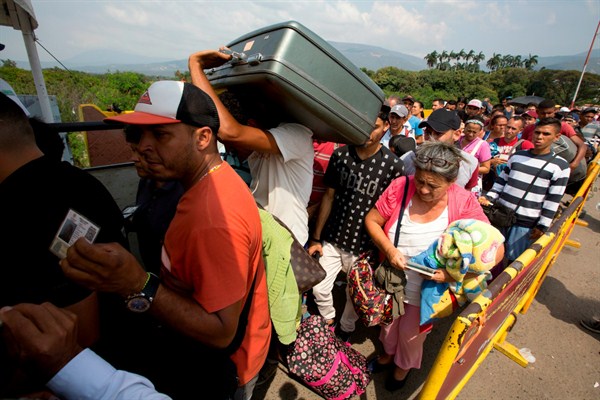The exodus of refugees and migrants fleeing Venezuela—a crisis that has largely been undercovered—appears to be reaching a breaking point, as leaders across Latin America scramble to deal with the growing number of Venezuelans arriving at their borders each day. Representatives of 13 Latin American nations met in Quito, Ecuador, last week for a summit to address the problem head-on, while setting in place some regional strategies for helping the estimated 2.3 million people—7 percent of Venezuela’s population—who, according to the United Nations, have already fled President Nicolas Maduro’s dictatorship. Other estimates put the figure at 4 million.
Since taking office in 2013, Maduro has tanked the country’s economy. Supermarket shelves are bare from Caracas to San Cristobal, miles-long lines for fuel are a new fact of life, and hyperinflation—expected to hit an astounding 1 million percent this year— makes the few basic products that are still available nearly impossible for middle- and lower-class residents to afford.
“This is building to a crisis moment that we’ve seen in other parts of the world, particularly in the Mediterranean, and we have to start lining up priorities and funding and means of managing this as soon as we can,” Joel Millman, spokesman for the U.N.’s International Organization for Migration, said at a press conference in Geneva in August.

